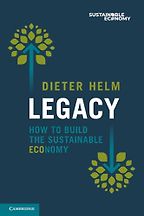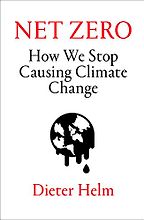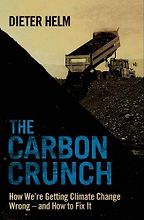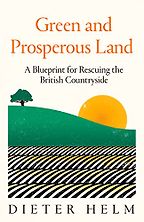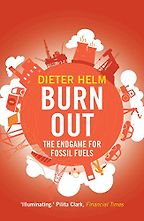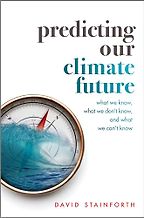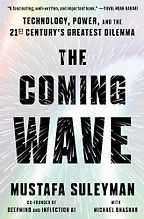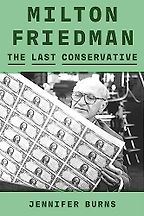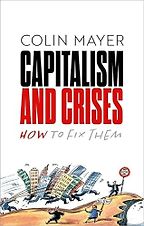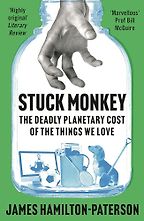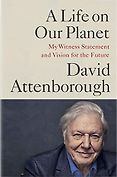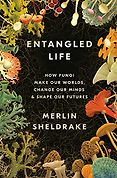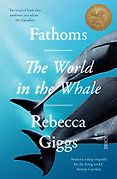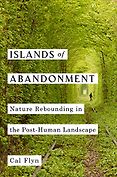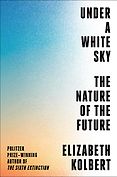
Books by Dieter Helm
Dieter Helm is Professor of Economic Policy at the University of Oxford and Fellow in Economics at New College, Oxford. From 2012 to 2020, he was Independent Chair of the Natural Capital Committee, providing advice to the government on the sustainable use of natural capital.
“Legacy…is really saying, ‘Okay, so I’ve looked at climate change, I’ve looked at natural capital, and it’s very obvious that what we’re doing is not sustainable.’ This isn’t going well on climate change. We’re not going to do 1.5 degrees; we’re probably not even going to do 2. On biodiversity, it’s a disaster. I kept telling people, ‘Do you all agree this is not sustainable?’ Everyone says, ‘Yes, of course it’s not.’ But people are never willing to draw that to its conclusion. That’s my strapline: ‘What is unsustainable will not be sustained.’ What I set out in Legacy is a blueprint of what the economy would look like if it were sustainable. It’s bracing to people who look at the current world and think, ‘If we just tweak it a little bit here or there, we’ll get there.’ It isn’t. It’s not a disastrous world. It’s still a world with growth because technology marches on. But it’s fundamentally different from what we’re doing.” Read more...
“The book is kind of ‘here’s the problem, here is how we got ourselves into this mess and here is Professor Dieter Helm’s idea of how we get ourselves out of it.’ We’re coming up to COP26 and he gives fairly short shrift to all the international efforts that we’ve made so far and says, ‘Here is what the UK could just get on and do.’ At the moment, we’re not counting the true cost of pollution. The person or the company that created it doesn’t pay for it. We’re also not counting properly the amount of emissions that we create offshore, which is pertinent at a time of free trade deals. We say, ‘It’s okay. We’re not growing chickens (or whatever it might be), we’re importing them. We can discount all those emissions because they happen in Australia. His point is, ‘yes, but they only happen because of us, so we should count them.’ I’m no economist, but it’s very readable and very clear, and quite angry. He is not happy. There’s a real sense of ‘Argh!’ throughout it.” Read more...
Interviews with Dieter Helm
-

1
Predicting Our Climate Future: What We Know, What We Don't Know, And What We Can't Know
by David Stainforth -

2
The Coming Wave: Technology, Power, and the Twenty-first Century's Greatest Dilemma
by Michael Bhaskar & Mustafa Suleyman -

3
Milton Friedman: The Last Conservative
by Jennifer Burns -

4
Capitalism and Crises: How to Fix Them
by Colin Mayer -

5
Stuck Monkey: The Deadly Planetary Cost of the Things We Love
by James Hamilton-Paterson
The best books on Economics and the Environment, recommended by Dieter Helm
The best books on Economics and the Environment, recommended by Dieter Helm
If you want to take an economy that’s wholly dependent on fossil fuels and turn it into a low-carbon one it’s going to be expensive, says economist Dieter Helm—and the sooner we face up to that reality the better. He recommends books to help us think through the relationship between economics and the environment, including one that really shines a spotlight on our own, individual behaviour.
Interviews where books by Dieter Helm were recommended
-

1
A Life on Our Planet: My Witness Statement and a Vision for the Future
by David Attenborough & Jonnie Hughes -

2
Entangled Life: How Fungi Make Our Worlds, Change Our Minds & Shape Our Futures
by Merlin Sheldrake -

3
Fathoms: The World in the Whale
by Rebecca Giggs -

4
Islands of Abandonment: Life in the Post-Human Landscape
by Cal Flyn -

5
Net Zero: How We Stop Causing Climate Change
by Dieter Helm -

6
Under a White Sky: The Nature of the Future
by Elizabeth Kolbert
The Best Conservation Books of 2021, recommended by Charlotte Smith
The Best Conservation Books of 2021, recommended by Charlotte Smith
Many of us are increasingly alarmed at the damage human beings have done—and continue to do—to the natural world and would love to be better informed about what we need to do to protect our precious environment. Fortunately, every year, the Wainwright Prize picks out the best writing on global conservation—books that are not only informative but highly readable. Here, British journalist Charlotte Smith, chair of the judging panel, talks us through the books that made the 2021 shortlist and why it’s worth reading all of them.
-

1
Predicting Our Climate Future: What We Know, What We Don't Know, And What We Can't Know
by David Stainforth -

2
The Coming Wave: Technology, Power, and the Twenty-first Century's Greatest Dilemma
by Michael Bhaskar & Mustafa Suleyman -

3
Milton Friedman: The Last Conservative
by Jennifer Burns -

4
Capitalism and Crises: How to Fix Them
by Colin Mayer -

5
Stuck Monkey: The Deadly Planetary Cost of the Things We Love
by James Hamilton-Paterson
The best books on Economics and the Environment, recommended by Dieter Helm
The best books on Economics and the Environment, recommended by Dieter Helm
If you want to take an economy that’s wholly dependent on fossil fuels and turn it into a low-carbon one it’s going to be expensive, says economist Dieter Helm—and the sooner we face up to that reality the better. He recommends books to help us think through the relationship between economics and the environment, including one that really shines a spotlight on our own, individual behaviour.
